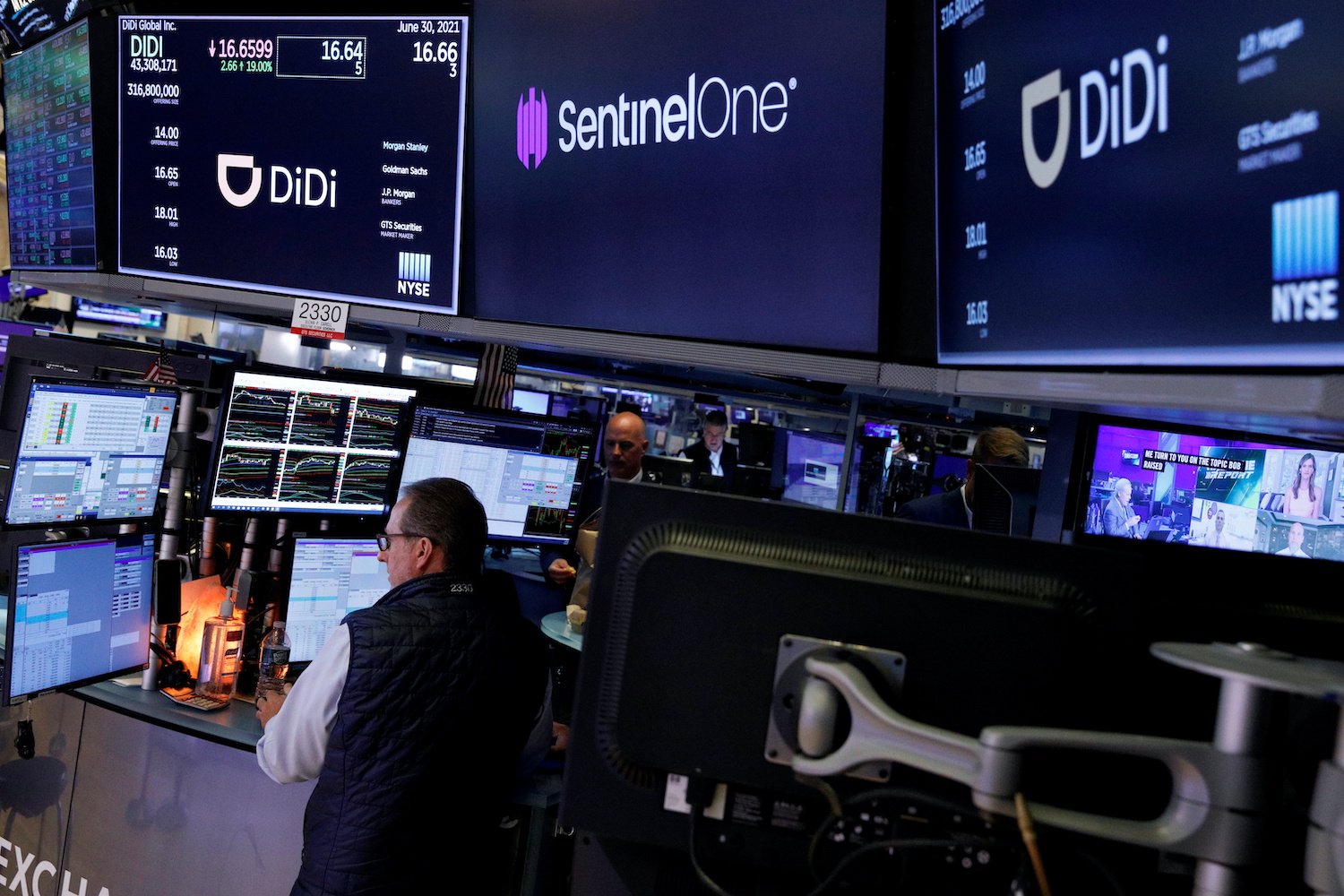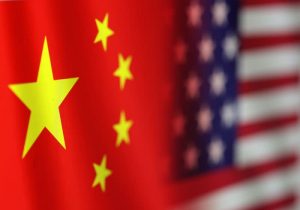Shares in Chinese ride-hailing giant slump amid suspicion that Didi failed to fully reveal regulatory risks ahead of its $4.4-billion IPO in New York last week
(AF) Didi shares slumped 25% in US pre-market trading on Tuesday July 6, ahead of its first session since China’s internet regulators ordered that the company’s app be taken down, days after its listing on the New York Stock Exchange.
In pre-market trading on Tuesday, Didi shares were trading at $11.59, well below its debut price of $16.65 on June 30.
The stock slump is only one of the group’s worries, as law firms in the US are preparing to sue the Chinese ride-hailing giant for providing misleading information ahead of last week’s $4.4 billion IPO.
Analysts had warned that any sharp fall in Didi’s shares when US markets reopen after the Independence Day long weekend could encourage investors to join suits.
New York law firm Rosen announced that it is considering a class action suit against Didi after the July 4 news that China’s Cyberspace Administration had banned new downloads of the ride-hailing giant’s app from online stores.
Rosen said that Didi “may have issued materially misleading business information to the investing public” ahead of its IPO, and invited investors to join a class action suit.
Rosen was among US law firms to reach a $250-million class action settlement with Alibaba over similar claims linked to disclosure ahead of its $25 billion IPO in 2014, the biggest listing of a Chinese firm in the US and one of the two biggest IPOs ever issued globally.
A settlement for a comparable percentage of the deal size relating to Didi’s IPO would cost around $40 million. This would not be a material amount for the firm dubbed the “Uber of China”, which has around 88% of its domestic market for ride-hailing.
Didi said on Monday July 5 that it had not been aware of the Chinese Cyberspace Administration’s plans to suspend its app before its IPO.
Regulator urged delay: WSJ
A Wall Street Journal report issued late on the same day claimed that the regulator had urged Didi to delay its IPO, however.
It said the watchdog attempted to dissuade Didi from going ahead the bumper IPO weeks before the US listing and urged the firm to launch an internal security probe, the WSJ said reported, citing unnamed sources familiar with the matter.
Officials were “wary of the ride-hailing company’s troves of data potentially falling into foreign hands” owing to public disclosure around the listing, the Journal’s sources said.
If that report is true, then US lawyers will be encouraged to file suits seeking substantial damages.
Didi can contend that – along with its IPO underwriters, led by Wall Street firms Goldman Sachs, JPMorgan and Morgan Stanley – it adequately disclosed the substantial regulatory risks it faces in the prospectus for the listing on the New York Stock Exchange (NYSE).
However, the sharp fall in Didi’s US-listed shares as markets were about to reopen on Tuesday July 6 is also likely to increase an investor appetite for legal action.
Didi’s NYSE-listed shares started trading on Wednesday July 1 at a substantial premium after the IPO of $4.4 billion. Didi was valued at around $70 billion by the close of its first day of trading.
This delivered a strong paper profit to major shareholders in Didi, including SoftBank’s Vision Fund, Tencent and Didi founder Cheng Wei.
But those gains have since been slashed.
Uber, which took a 12% stake in Didi when it agreed to pull out of the Chinese market for ride-hailing in 2016, also looks likely to suffer from the shares fall in value.
The crisis began on Friday July 2 when a probe into the firm on grounds of “national security and public interest” was announced by China’s Cyberspace Administration.
‘Serious violations’
The statement issued on its website by the Cyberspace Administration on Sunday July 4 went further. It said that “after testing and verification” the Didi Travel app was found to have “serious violations of laws and regulations in collecting and using personal information”.
The regulator ordered its removal from app stores and required Didi to “strictly follow the legal requirements and refer to relevant national standards to…rectify existing problems (and) effectively protect the personal information security of users.”
Analysts say there are appear to be two factors behind Beijing’s actions – one is to safeguard the data of Chinese users, while it also prefers to see its high-profile tech companies keep their core assets, such as data and algorithms, remain in China.
Asian exchanges reacted to the latest Chinese regulatory crackdown on Monday. SoftBank fell by 5.4% in Tokyo trading, while Tencent closed down by 3.6% in Hong Kong.
The two firms have other shareholdings in addition to their Didi stakes that could be affected by further tightening of regulation in China.
SoftBank is a shareholder in Full Truck Alliance, for example, a Chinese firm sometimes called the “Uber for trucks” which also recently had a US IPO, and is now under regulatory scrutiny along with Didi.
However, the biggest single recent blow to investor confidence from tougher regulation by China remains its surprise move in November 2020 to suspend the planned $34 billion IPO of Ant Group.
But the latest steps to crack down on Chinese firms that recently listed in the US has added another risk factor for investors, as well as prompting likely legal action within the US.
This report was updated on July 6 with new information from AFP and Reuters.
























